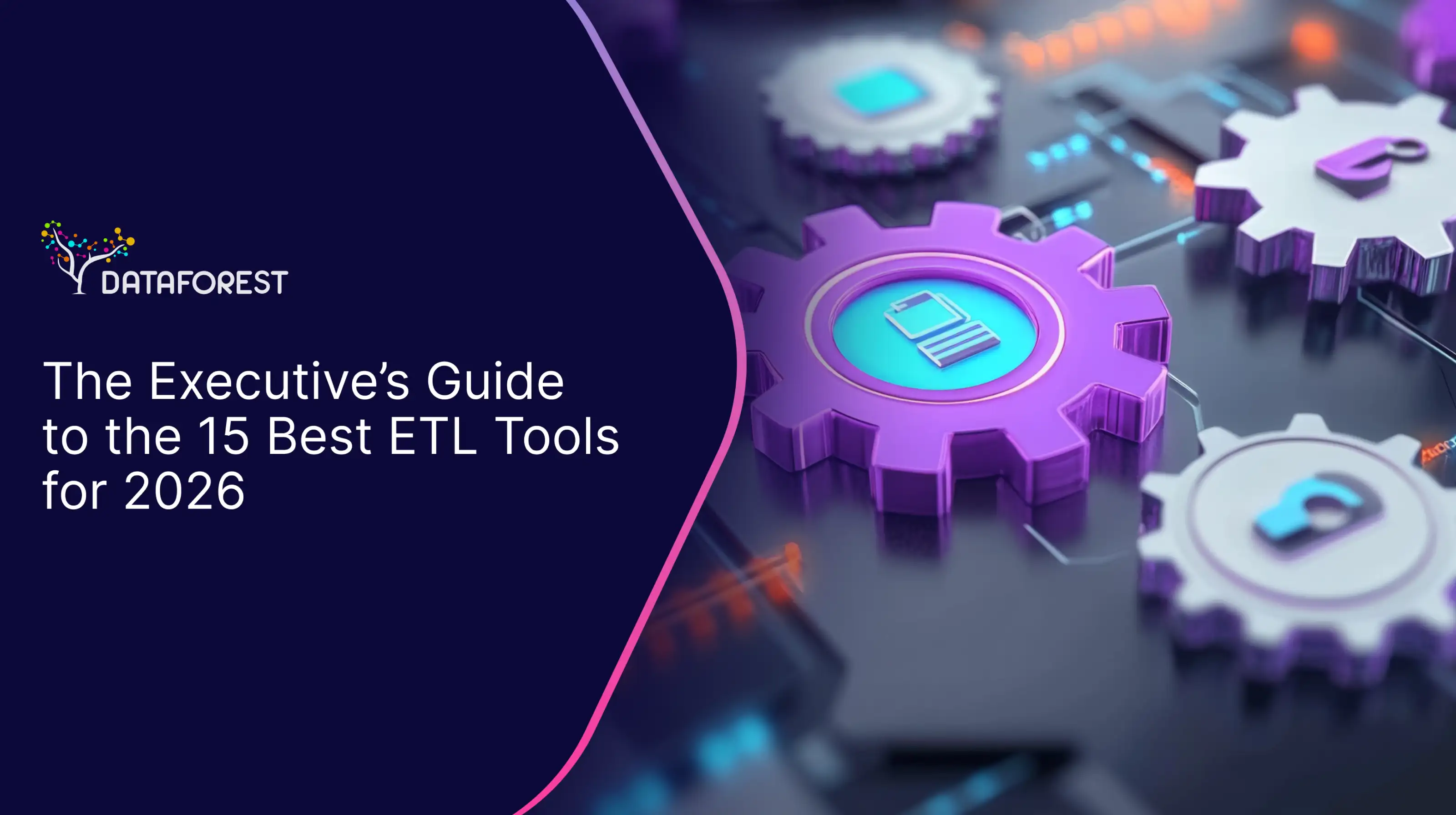Retailers struggle with inventory management – their stores keep running out of popular items while unwanted products pile up. The Chief Artificial Intelligence Officer implements an AI system to predict customer demand based on big data, weather, and social media. Within months, the stores start stocking exactly what customers want when they want it, reducing waste by 30% and boosting sales by 25%. But the CAIO's job isn't done – they also make sure the AI is being used ethically, train staff to work with the new system, and keep an eye out for ways to use AI in other areas like process optimization in customer service and marketing. Thanks to the Chief Artificial Intelligence Officer's work, the company saves millions in inventory costs and gains a competitive edge by being more responsive to customer needs. Schedule a call to complement reality with a profitable tech solution.
.webp)
What is a Chief Artificial Intelligence Officer, and What Do They Do?
A Chief Artificial Intelligence Officer is the go-to person in a company for all things AI. They're responsible for making sure AI is being used to push the business forward, from automating processes to enhancing user experiences. The CAIO's job is to figure out how AI can solve business problems and make it happen by working with engineering teams and other leaders.
Building AI Strategy: Crafting a game plan for how AI will be used across the company, from digital transformation to creating new AI-powered products.
Implementing AI: Making sure AI is smoothly integrated into products, services, and day-to-day workflows with constant monitoring and supervision.
Collaborating: Teaming up with other execs (like the CTO and CIO) to ensure AI fits into the bigger digital tech picture.
Driving Innovation: Using AI to fuel innovation, whether it’s developing smarter products or improving customer interactions through behavioral analysis and data management.
Managing AI Ethics: Ensuring AI is used responsibly and in compliance with regulations.
Growing the Team: Building and leading a talented AI team and fostering a culture that embraces AI in project management.
Big Businesses Need a Chief Artificial Intelligence Officer
As AI continues to shape industries, having a Chief Artificial Intelligence Officer is becoming a must for big companies. The CAIO is the person who leads the charge in using AI to transform operations, drive optimization, and give the business a real edge.
Strategic Importance
A Chief Artificial Intelligence Officer makes sure AI is doing more than just "nice-to-have" things—it's driving real business value. They align AI with company goals, streamlining processes, improving business intelligence and decision-making, and boosting efficiency. Companies struggle with adoption or miss opportunities to use AI responsibly and ethically without someone leading AI efforts.
Competitive Advantage
In a world where AI changes everything, having a CAIO means staying ahead of the competition. They drive innovations like predictive analytics, data mining, deep learning, robotics, and personalized customer experiences. That means faster, better products, lower costs, and happier customers.
Case Studies
Amazon uses AI to optimize everything from deliveries to personalized shopping recommendations.
JPMorgan Chase taps AI for fraud detection and financial forecasting to make operations safer and more efficient.
Coca-Cola leverages AI to understand customer preferences and refine marketing efforts.
CAIO Skills: Blending Tech Know-How with Strategic Leadership
A Chief Artificial Intelligence Officer needs to be well-versed in AI technologies like machine learning and data science, but it's equally important for them to turn that knowledge into real business strategies. This means leading teams, ensuring that AI projects align with company goals, and keeping everything ethical and compliant.
Having industry experience is also a big deal since it helps the CAIO apply AI in ways that tackle specific challenges and seize opportunities in their field. So, the trend really highlights the need for a well-rounded skill set that combines cutting-edge tech skills with smart leadership. It’s all about using AI to drive business success while staying responsible and aware of the bigger picture, from data management to workforce planning.
Book a call if you want to always be on the cutting edge of technology.
The Impact of a CAIO on Business Operations
A Chief Artificial Intelligence Officer reshapes the way the whole organization operates. Their influence is seen across the board, from encouraging innovation to making processes smoother and improving decision-making. They help businesses stay flexible and thrive in a fast-paced environment.
The CAIO’s Role in Driving Change
A Chief Artificial Intelligence Officer is crucial for fostering innovation by identifying new AI opportunities that transform products and services. They cultivate teams to feel encouraged to experiment with machine learning and NLP (natural language processing). It leads to fresh automation solutions and keeps the company ahead of the curve by pushing AI’s possibilities.
How a CAIO Streamlines Operations
One of the benefits of having a Chief Artificial Intelligence Officer is the boost in operational efficiency. By leveraging AI, they automate repetitive tasks, streamline workflows, and reduce mistakes. For instance, AI-driven analytics tools help manage supply chains, anticipate maintenance needs, and enhance customer service through chatbots. Automation allows employees to focus on more valuable tasks, speeding up processes and cutting costs.
The CAIO's Influence on Data-Driven Choices
A Chief Artificial Intelligence Officer is also pivotal in enhancing decision-making by integrating AI into data analytics. With advanced analytics, businesses gain deeper insights from their data to make more informed choices. The CAIO advocates for using predictive analytics and data visualization tools, empowering teams to make proactive decisions based on real-time data. This approach improves accuracy and helps organizations respond quickly to market shifts and customer preferences.
Finding Your Chief Artificial Intelligence Officer
Essential Qualifications
- Someone who knows their AI stuff – fancy degree required
- A battle-tested leader with 5+ years in the AI trenches
- Proof they've actually made AI work in the real world
- Sharp business mind that gets the bigger picture
- Can explain complex AI to anyone without putting them to sleep
Finding Top Talent
- Get friendly with headhunters who know the tech scene
- Hit up big AI conferences – that's where the talent hangs out
- Build connections with AI labs and tech schools
- Work your LinkedIn magic – seriously, it works
- Dive into AI communities where the experts hang
Setting Up for Success
- Set clear goals for their first three months
- Introduce them to everyone who matters – fast
- Give them the tools and data they need to succeed
- Keep the communication flowing with other executives
- Help them make friends across all departments
Tomorrow's AI Boss – The Wild Ride Ahead
Your typical Chief Artificial Intelligence Officer nowadays is running around like a cat on a hot tin roof. One minute, they're stopping an AI chatbot from learning swear words; the next, they're sweet-talking the board into backing some wild new tech that sounds like it's straight out of Star Trek.
- They're not just tech geeks anymore - they've got to be smooth operators who can charm the pants off investors while keeping the tech team from going rogue.
- Ethics is becoming a huge deal (because nobody wants their AI to turn into Skynet).
- They're playing matchmaker between old-school business and bleeding-edge tech.
- Talent wars are getting nuts – try finding unicorns who can code AND talk human.
These Chief Artificial Intelligence Officers are starting to look pretty tasty for the CEO spot. It makes sense – they're basically fortune tellers who can make the future happen.
- AI is becoming as normal as coffee in the office
- More focus on AI that doesn't need a PhD to understand it
- Building tech that helps humans instead of creeping them out
- Dealing with rules that haven't even been written yet
.webp)
Build or Buy? The Chief Artificial Intelligence Officer Dilemma
The best choice depends on your situation. If you've got time and a promising internal candidate who gets both tech and business, growing your own CAIO could be golden. But if you need AI leadership yesterday and have the budget, bringing in an external pro like DATAFOREST might be your best bet. Consider the smart move such as a hybrid approach – hire an experienced Chief Artificial Intelligence Officer to train internal talent while building the AI strategy. That way, you get the best of both worlds: immediate expertise and long-term internal capability. Please complete the form to discuss the correct option in detail.
FAQ
How does a CAIO contribute to a company's competitive advantage?
A Chief Artificial Intelligence Officer uses AI tech to spark cool innovations that improve products, streamline processes, and create personalized customer experiences. By tying AI efforts to business goals, they help the company stay ahead of the pack and react quickly to what's happening in the market.
How can a Chief Artificial Intelligence Officer drive innovation within my organization?
A CAIO encourages teams to think outside the box and experiment with new AI tools that can shake things up in your products and services. They spot opportunities to apply AI in ways that tackle problems and open new doors for growth.
What are the key challenges a CAIO might face, and how can they be addressed?
A Chief Artificial Intelligence Officer struggles with data privacy issues, keeping AI ethical, or getting buy-in from the team. Tackling these challenges means setting up clear guidelines, providing hands-on training, and making sure everyone is onboard during the AI rollout.
What impact does a Chief Artificial Intelligence Officer have on business decision-making processes?
A CAIO supercharges decision-making by weaving AI into data analytics, helping teams pull out insights from tons of data. This means decisions are more informed and can adapt to shifts in the market or customer preferences.
How can a CAIO improve operational efficiency in a large enterprise?
A Chief Artificial Intelligence Officer boosts operational efficiency by automating repetitive tasks and streamlining workflows with AI-powered tools, cutting down on errors and freeing up time for more valuable work. This leads to quicker processes, reduced costs, and a more productive team overall. Digital transformation initiatives led by the CAIO ensure AI is integrated into every part of the business, from human resources to sales.
What should I look for when hiring a Chief Artificial Intelligence Officer for my organization?
When hiring a CAIO, look for someone who knows their stuff about AI technologies and has solid leadership experience. It’s also key that they understand your industry’s challenges and have a handle on ethical AI practices for successful implementation.
What are the emerging trends in AI that a CAIO should be aware of?
Keep an eye on trends like advancements in natural language processing, the increasing focus on AI ethics, and the rise of AI in edge computing. Being aware of these technology trends helps a Chief Artificial Intelligence Officer use the latest tech to keep your business competitive.
Is there a difference for a chief digital and artificial intelligence officer in what industry to work?
The role of a CAIO (chief artificial intelligence officer) can vary by industry, as different sectors have distinct digital transformation needs and AI applications. For example, in healthcare, they might focus on AI for diagnostics, while in retail, they could prioritize AI-driven personalization and supply chain optimization.



.webp)





.svg)
.webp)


.webp)












